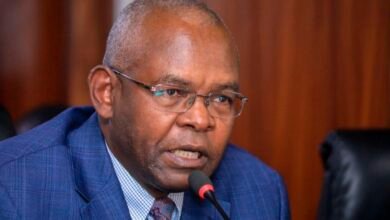
The Kenyan Shilling has retained its vulnerability against the United States Dollar at a low of 114.8 units, signaling a crisis in commodity prices.
On Tuesday, the shilling slumped further against the dollar to trade at Ksh.114.82, down from Ksh.114.7 on Monday.
This has been fueled by the economic fallout over the continued war between Ukraine and Russia, with the latter being the second-largest producer of crude oil globally.
The depreciation of the Kenyan Shilling, however, brings itself various impacts on the economy, which are both positive and negative.
According to the Central Bank of Kenya (CBK), the weakening of the shilling beings about a competitive exchange rate to ensure that the interests of both exporters and importers are balanced. Its adjustment will help in correcting any imbalances found within the market.
The depreciation of the Kenyan Shilling which is currently at a rate of 6.23 percent, implies a higher cost in Shillings to finance imports.
A weak Shilling will lead to lower foreign export prices, hence increasing the country’s competitiveness in the world market.
“An increase in competitiveness improves our balance of trade position,” explains CBK in its note back in the year 2013.
A weak Shilling also discourages the final consumption of luxury imports as it promotes domestic investments that lead to job creation.
Stong Shilling
A strong Kenyan Shilling reduces the competitiveness of exports thus weakening the country’s economic growth.
This brings about domestic competitive industries being discouraged as Kenyan exports become expensive abroad while imports become cheaper, leading to the share of foreign goods in the domestic market increase.
A high-interest rate inhibits domestic investment, resulting in negative effects on economic growth and employment.
Strengthening a currency can be equated to a tax hike, as an upsurge of the manufacturers; the burden will be seen, while imports are made cheaper domestically.
CBK has however provided a policy environment that participates in the foreign exchange market to help curb excessive volatility that comes from external shocks, to cover the short-term shortage of foreign exchange liquidity in the market, to effect government external payment obligations.
The policy is also used when CBK is building its foreign exchange reserves that increase the months of import cover position.





